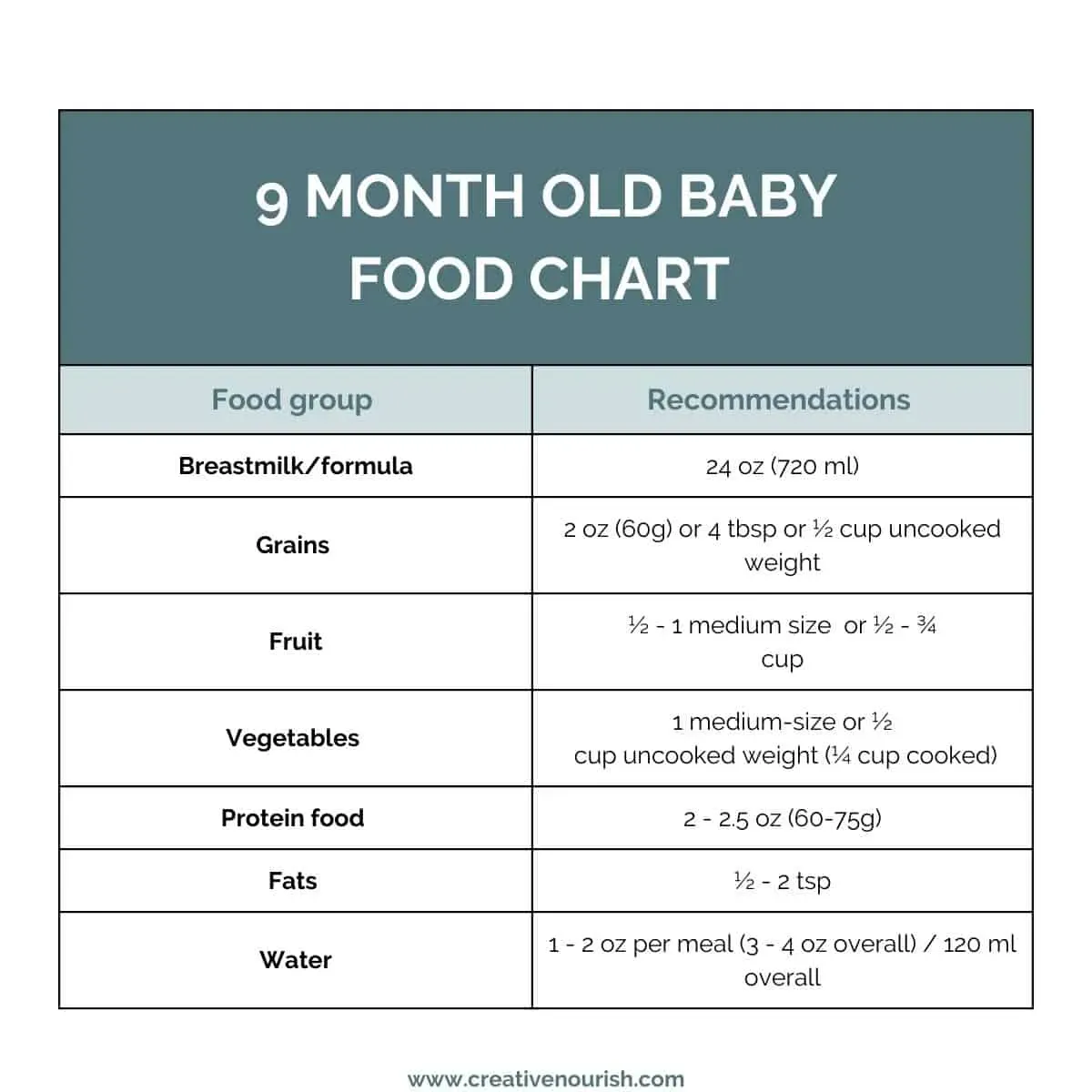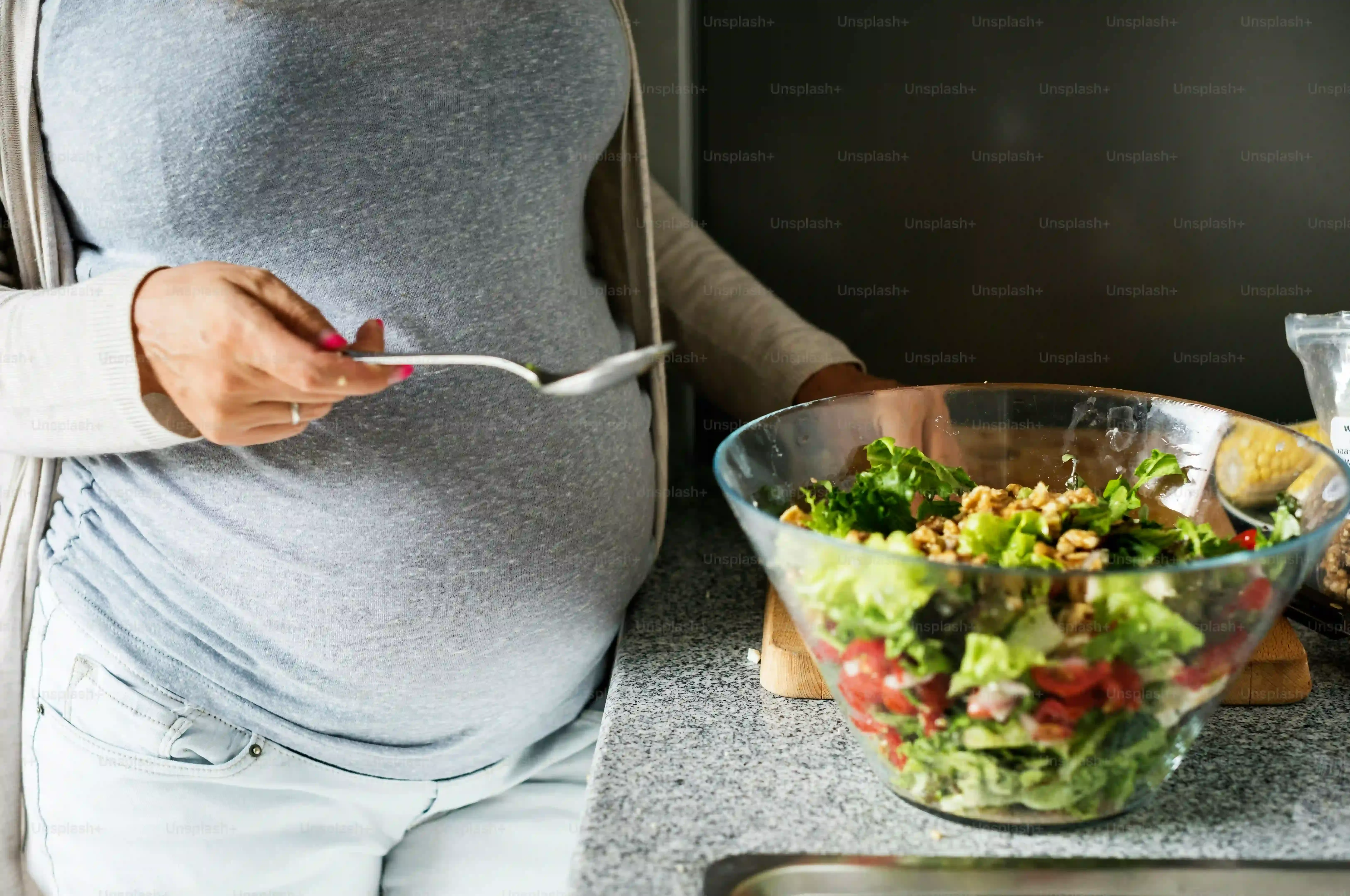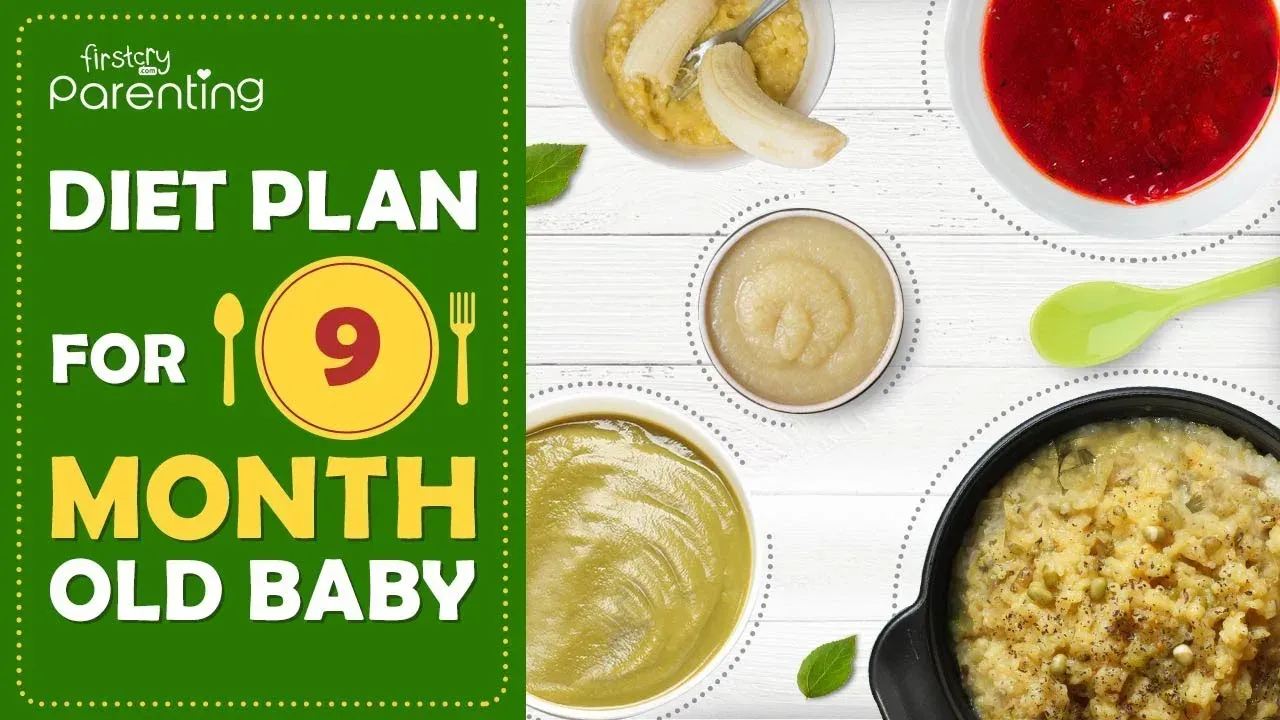Table of Contents
So, your little one is hitting the nine-month mark, and suddenly that sweet, milky baby is eyeing your dinner plate like a tiny hawk. The world of solid foods opens up, and with it, a whole new layer of questions and maybe a little panic. What should they eat? How much? Is this mushy thing even food? It’s a common spot to be in. You want to make sure they're getting the good stuff, the nutrients they need to keep growing those chubby legs and developing those curious brains, but figuring out where to start feels like solving a complex puzzle.
What Your 9MonthOld Needs: Beyond the Bottle

What Your 9MonthOld Needs: Beyond the Bottle
The Great Solid Food Shift
so you've made it to nine months. High fives all around! At this stage, your little human isn't just relying on milk or formula to fuel their non-stop exploration (and occasional questionable snack choices off the floor). Solids are becoming a bigger deal. They're not just for fun anymore, though they should absolutely still be fun! Think of it as their training wheels for grown-up eating. While breast milk or formula is still their primary source of nutrition, providing roughly 400-500 calories daily, solid foods are stepping up to the plate, literally.
This is where they start getting significant amounts of calories and, more importantly, crucial nutrients that milk alone can't provide enough of anymore. We're talking about things their rapidly growing bodies and brains are practically screaming for. It's less about perfectly portioned gourmet meals and more about offering variety and exposure. Don't stress if they don't devour everything; it's a journey, not a race.
Key Nutrients Taking Center Stage
At nine months, two nutrients really jump to the front of the line: iron and zinc. Their iron stores from birth are starting to dip, and iron is vital for brain development and preventing anemia. Zinc is another biggie, supporting growth and their immune system. You can't get enough of these from just milk or formula now, which is why introducing iron-fortified cereals or pureed meats becomes pretty important. Think of these foods as their nutritional power-ups.
Besides iron and zinc, they still need healthy fats for brain development, calcium and Vitamin D for strong bones (often supplemented), and a whole rainbow of vitamins and minerals found in fruits and veggies. Aiming for a mix of textures and flavors helps them develop their palate and motor skills too.
- Iron: Crucial for brain development and energy. Find it in pureed meats, iron-fortified cereal, beans.
- Zinc: Supports growth and immunity. Good sources include meat, lentils, and fortified cereals.
- Healthy Fats: Essential for brain growth. Avocado, yogurt, and small amounts of healthy oils are good options.
- Vitamins & Minerals: A variety is key. Offer lots of different colored fruits and vegetables.
Best Foods to Include in Your Healthy Meal Plan for 9 Month Old

Best Foods to Include in Your Healthy Meal Plan for 9 Month Old
Filling Plates and Tiny Bellies
Alright, let's talk food. Not the kind you eat standing over the sink at 9 PM, but food for the tiny boss of the house. Building a solidhealthy meal plan for 9 month oldinvolves stocking up on ingredients that pack a nutritional punch and are safe for them to manage. This isn't about creating miniature gourmet meals, though you certainly can if that's your jam. It's about offering variety, crucial nutrients, and letting them explore textures and tastes.
Think of their plate as a tiny canvas waiting for color. You want fruits, vegetables, sources of protein and iron, healthy fats, and some grains. Variety is the spice of life, even for someone who currently finds their own foot fascinating. Offering different things helps prevent pickiness down the road and ensures they get a wide range of vitamins and minerals. Mashed, pureed, soft cooked pieces – whatever they can handle with their emerging skills (or lack thereof).
Here's a quick rundown of some MVPs for your nine-month-old's menu:
- Soft, mashed fruits: Bananas, avocados (yes, it's a fruit!), cooked apples, pears, peaches, berries (mashed or pureed).
- Cooked, soft vegetables: Sweet potatoes, carrots, peas, green beans, broccoli florets (steamed until very soft), butternut squash.
- Iron-rich proteins: Pureed or finely minced cooked meats (chicken, beef, turkey), scrambled eggs (cooked through), pureed lentils or beans, tofu.
- Grains: Iron-fortified infant cereal (mixed with milk, formula, or water), small pieces of soft bread or toast, pasta shapes (cooked very soft).
- Healthy fats: Plain full-fat yogurt, avocado, small amounts of healthy oils stirred into food.
Navigating Textures and Allergens
At nine months, many babies are ready for thicker purees, mashed foods, and even some soft, finger-friendly pieces. This helps them practice chewing and develops those fine motor skills needed for self-feeding. If they gag, don't panic; it's often a reflex and different from choking. Stay calm, and offer smaller pieces or thicker textures next time.
Introducing potential allergens like peanuts, eggs, wheat, soy, and fish is also recommended around this age, often earlier, but definitely by nine months. Doing it early and consistently can actually help reduce the risk of allergies. Talk to your pediatrician about the best way to introduce these, especially if you have a family history of allergies. It usually involves giving a tiny amount at home and watching for any reactions.
Remember my neighbor's kid, little Leo? His parents were terrified of introducing peanuts because of an aunt with a severe allergy. Their pediatrician walked them through it, starting with a tiny bit of peanut butter mixed into yogurt. Leo inhaled it and showed no reaction. It's a process, and slow introductions under watchful eyes are key.
Think about the textures you're offering. Are they all smooth purees? Time to branch out! Crumbled egg yolk, mashed sweet potato, soft pea halves – these challenge their mouths in new ways. It’s messy, absolutely. You’ll find food in places you didn’t know existed. That’s just part of the journey.
What's one new texture you plan to introduce this week?
A Sample Healthy Meal Plan for 9 Month Old

A Sample Healthy Meal Plan for 9 Month Old
Putting it Together: A Daily Rhythm
Alright, so you've got the list of superhero foods, but how do you actually string them together throughout the day? This is where a samplehealthy meal plan for 9 month oldcomes in handy. Think of it as a flexible template, not a rigid schedule you'll be penalized for deviating from. Life with a nine-month-old is unpredictable, right? One day they're eating everything in sight, the next they're teething and refusing anything but chilled cucumber spears. This plan gives you a framework, something to aim for, typically involving three solid meals and maybe one or two snacks, alongside their usual milk feeds.
What a Day Might Look Like
A typical day could start with breakfast offering some iron-fortified infant cereal mixed with breast milk or formula, maybe some mashed banana or avocado on the side. Mid-morning, after a milk feed, they might have a snack of plain yogurt or a few soft pieces of fruit. Lunch could involve pureed or mashed cooked vegetables mixed with a source of protein like lentils or finely minced chicken. The afternoon often includes another milk feed and perhaps a small snack like soft cheese or some teething crackers. Dinner is a chance to offer more variety, perhaps a portion of soft-cooked pasta with vegetable sauce, or mashed sweet potato and pureed meat, before their final milk feed before bed. The key is offering variety across the day and week.
Time | Feeding Type | Sample Food Ideas |
|---|---|---|
Morning (Wake up) | Milk Feed | Breast milk or Formula |
Breakfast | Solid Food | Iron-fortified cereal with milk, mashed fruit (banana, berries), avocado pieces |
Mid-morning | Milk Feed & Snack | Breast milk or Formula, plain full-fat yogurt, soft fruit pieces, small amount of cheese |
Lunch | Solid Food | Pureed or mashed cooked veggies (carrot, squash), pureed or finely minced protein (chicken, lentils), small pasta shapes |
Afternoon | Milk Feed & Snack | Breast milk or Formula, soft bread pieces, teething crackers, cooked sweet potato cubes |
Dinner | Solid Food | Mashed veggies (broccoli, peas), pureed meat or fish (low mercury), soft cooked rice or quinoa |
Before Bed | Milk Feed | Breast milk or Formula |
Making it Work for Your Family
Remember this samplehealthy meal plan for 9 month oldis just a suggestion. Your baby's appetite will vary daily, sometimes even meal to meal. Some days they'll eat like they're training for a competitive eating contest, other days they'll treat the food like a foreign object. That's normal. Pay attention to their hunger cues. Are they leaning in? Opening their mouth? Or are they turning away and batting the spoon? Follow their lead. Try to include them in family mealtimes when possible; they learn so much by watching you eat. And don't be afraid to adapt family meals for them – steaming some extra veggies or setting aside a portion of unsalted chicken before seasoning for the adults works wonders.
Quick Meal & Snack Ideas for Your Busy Schedule

Quick Meal & Snack Ideas for Your Busy Schedule
When Time is Not on Your Side
Let's be real. Life with a nine-month-old is a tornado of laundry, questionable smells, and wondering if you showered yesterday. Finding time to whip up elaborate meals for a tiny human who might just smear it on their forehead anyway? Yeah, sometimes that feels impossible. But ahealthy meal plan for 9 month olddoesn't have to mean hours in the kitchen. Quick doesn't mean less nutritious. It just means smarter.
Think about leveraging things you're already doing. Steaming extra vegetables for your dinner? Great, mash some aside for the baby. Making chicken? Cut off a piece before you add salt and spices, then finely mince or shred it. Leftovers are your friend – if you made a baby-friendly lentil soup yesterday, today's lunch is sorted. Keeping simple, ready-to-go options on hand is key when the "I'm hungry NOW" wails begin.
Stocking Up for Speed
Having the right ingredients prepped or easily accessible makes a huge difference. Hard-boil a batch of eggs at the start of the week. Mash up several avocados and store them in small containers (add a squeeze of lemon or lime to prevent browning, though honestly, they'll probably eat it too fast to notice). Portion out plain yogurt. These little steps save you precious minutes when you're juggling a fussy baby and a rumbling stomach.
Don't underestimate the power of simple snacks. A few soft berries, a piece of cheese, some unsweetened applesauce, or a rice cake can bridge the gap between meals without requiring any cooking whatsoever. Just make sure the textures are safe and supervise closely. My own kid once tried to eat a dust bunny he found under the sofa – point is, vigilance is required regardless of the snack.
Quick Snack Ideas for Your 9-Month-Old:
- Plain full-fat yogurt
- Mashed or soft fruit (banana, avocado, cooked pear)
- Small pieces of soft cheese
- Cooked vegetable sticks (very soft carrot, sweet potato)
- Unsweetened applesauce or fruit puree pouches (check ingredients!)
- Rice cakes or unsalted teething crackers
- Hard-boiled egg yolk (crumbled)
Foods to Avoid When Planning Meals for Your 9 Month Old

Foods to Avoid When Planning Meals for Your 9 Month Old
Steering Clear of the Obvious Traps
Alright, let's talk about the no-fly zone for your nine-month-old's plate. While building ahealthy meal plan for 9 month oldis about what to include, it's just as critical to know what to leave out. Some things are just plain dangerous at this age. Think choking hazards. Those tiny airways are easily blocked. Hard candies? Popcorn? Whole grapes or cherry tomatoes? Raw carrots or apples? Nuts? These are absolute no-gos unless prepared safely (grapes and tomatoes quartered, hard fruits/veg cooked soft and cut small). Sticky stuff like large blobs of peanut butter or marshmallows can also be tricky and get stuck.
It's not about being overly paranoid, it's about understanding their current capabilities. Their chewing skills are still developing, and their gag reflex is their primary defense against choking, but you don't want to rely solely on that. My cousin's kid somehow managed to get a piece of dog kibble into his mouth before anyone could react. Thankfully, it was a near miss, but it's a stark reminder that babies are incredibly fast and will put anything they find straight into their mouths. Keeping dangerous items out of reach is step one, but preparing their actual food safely is non-negotiable.
The Less Obvious Offenders: Salt, Sugar, and More
Beyond the choking risks, there are other foods that just aren't doing your nine-month-old any favors. Added salt is a big one. Their tiny kidneys can't process much salt, and too much isn't good for anyone's blood pressure, let alone a baby's. Skip adding salt when cooking their food, and be wary of processed foods like crackers, some cereals, and ready-made sauces which often contain hidden salt and sugar. Speaking of sugar, added sugars offer zero nutritional value and just set them up for a sweet tooth down the line. Avoid sugary drinks entirely – water or milk/formula is all they need.
Honey is another major no-no before their first birthday due to the risk of infant botulism, a rare but serious illness. This applies even to tiny amounts in cooked goods. Also, steer clear of raw or undercooked meat, poultry, fish, and eggs to avoid food poisoning. Large predatory fish like shark, swordfish, king mackerel, and tilefish contain high levels of mercury and should be avoided. Stick to lower-mercury options like salmon, tuna (light canned, limit amount), and cod. Unpasteurized dairy products and juices can also harbor harmful bacteria. Always choose pasteurized versions.
Foods to Keep Off the 9-Month-Old Plate:
- Honey (until age 1)
- Added salt and sugar
- Whole nuts and seeds
- Popcorn
- Hard candy
- Whole grapes, cherry tomatoes (unless quartered)
- Raw, hard vegetables or fruits (unless grated or cut very small)
- Large blobs of sticky foods (peanut butter, marshmallows)
- Raw or undercooked meat, poultry, fish, or eggs
- High-mercury fish (shark, swordfish, king mackerel, tilefish)
- Unpasteurized dairy or juice
Wrapping It Up: Don't Overthink the Peas
Getting ahealthy meal plan for 9 month oldsorted might feel like a monumental task, but honestly, it's more about offering variety and seeing what sticks (sometimes literally). Remember, milk or formula is still doing a lot of the heavy lifting at this age. Solids are for exploration, nutrients, and teaching them that food comes in more exciting forms than a bottle. There will be messes, rejections, and probably a few questionable food combinations your kid invents. That's normal. Focus on offering good options, staying calm (as much as possible), and remembering that this phase is temporary. They won't be eating pureed carrots forever, promise. Maybe just mashed ones.